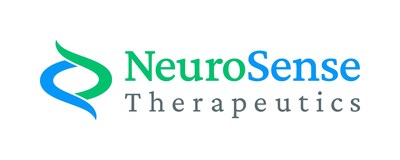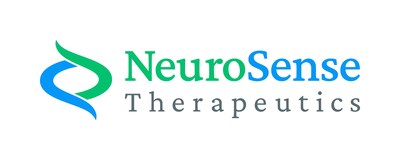
Initial Phase 2 RoAD trial results demonstrate improvements in brain-cell connectivity and health, with a favorable safety profile
CAMBRIDGE, Mass., Sept. 10, 2025 /PRNewswire/ — NeuroSense Therapeutics Ltd. (Nasdaq: NRSN) (“NeuroSense”), a late-clinical stage biotechnology company developing novel treatments for severe neurodegenerative diseases, today announced positive initial results from its collaboration with NeuroKaire in the ongoing RoAD Phase 2 clinical trial evaluating PrimeC for Alzheimer’s disease (AD).

Using NeuroKaire’s proprietary technology to generate brain cells from each patient’s blood, analysis of samples from clinically characterized AD patients demonstrated that:
- PrimeC treatment enhanced neuroplasticity, a key feature in supporting brain health and function and underlying memory formation and retention.
- No treatment-related toxicity was observed, demonstrating the safety of PrimeC combination.
NeuroSense’s RoAD study is a randomized, double-blind, placebo-controlled Phase 2 trial enrolling mild-to-moderate AD patients, designed to evaluate safety, efficacy, and biological activity of PrimeC over 12 months.
These results provide an early, patient-specific view of how PrimeC may affect disease-relevant human neurons, reinforcing the program’s mechanistic rationale and guiding precision development in AD.
NeuroKaire’s proprietary technology reprograms blood sample cells into induced pluripotent stem cells (iPSCs) and differentiates them into mature human cortical neurons. After validation, neurons are exposed to PrimeC, and advanced high-content imaging using AI-driven analytics quantifies key features of neuronal structure. This generates composite response profiles tied to neuroplasticity, connectivity, and cell health.
Alon Ben-Noon, CEO of NeuroSense, stated:
“This is exactly the kind of early, decision-enabling signal RoAD was designed to uncover. By integrating NeuroKaire’s patient-derived neuron platform with our clinical program, we observed measurable gains in brain-cell connectivity and a favorable safety profile. These findings strengthen PrimeC’s mechanistic rationale in Alzheimer’s and enable us to focus development with greater precision.”
Dr. Daphna Laifenfeld, CSO of NeuroKaire, commented:
“Our platform is designed to detect subtle, disease-relevant changes in human neurons with the sensitivity modern drug development requires. This collaboration demonstrates how a bench-to-clinic 360° workflow can transform a simple blood draw into actionable, patient-specific insights, accelerating innovation for people living with AD.”
These results will be presented at the CNS Summit 2025 in Boston, November 2nd – 5th by David Pattison, VP Business Development at NeuroKaire.
NeuroSense and NeuroKaire will continue evaluating PrimeC’s cellular effects in parallel with clinical outcomes from the RoAD trial, with top-line data expected following study completion.
About Alzheimer’s Disease
Alzheimer’s disease (AD) is a progressive neurodegenerative disorder and the leading cause of dementia worldwide, affecting more than 30 million people globally. AD is characterized by memory loss, cognitive decline, and behavioral changes, and currently has no cure. Existing therapies provide only limited symptomatic relief, leaving a significant unmet need for disease-modifying treatments that can slow or halt progression. Given the complexity of AD, approaches that target multiple disease mechanisms simultaneously, such as PrimeC, hold potential to deliver meaningful therapeutic advances for patients and their families.
About PrimeC
PrimeC, NeuroSense’s lead drug candidate, is a novel extended-release oral formulation composed of a unique fixed-dose combination of two FDA-approved drugs: ciprofloxacin and celecoxib. PrimeC is designed to synergistically target several key mechanisms of ALS and AD, that contribute to neuron degeneration, inflammation, iron accumulation and impaired ribonucleic acid (“RNA”) regulation to potentially inhibit the progression of ALS and AD.
About NeuroKaire
NeuroKaire, founded in 2018 by Talia Cohen-Solal, Ph.D., and Daphna Laifenfeld, Ph.D., is developing personalized medicine solutions to optimize treatment for psychiatric and neurological diseases. The company’s proprietary AI-powered platform, Stemifai, leverages stem cell differentiation and machine learning to inform and advance CNS drug development processes. To learn more, follow us on LinkedIn or on Twitter @Genetikaplus.
About NeuroSense
NeuroSense Therapeutics, Ltd. is a clinical-stage biotechnology company focused on discovering and developing treatments for patients suffering from debilitating neurodegenerative diseases. NeuroSense believes that these diseases, which include amyotrophic lateral sclerosis (ALS), Alzheimer’s disease and Parkinson’s disease, among others, represent one of the most significant unmet medical needs of our time, with limited effective therapeutic options available for patients to date. Due to the complexity of neurodegenerative diseases and based on strong scientific research on a large panel of related biomarkers, NeuroSense’s strategy is to develop combined therapies targeting multiple pathways associated with these diseases.
For additional information, we invite you to visit our website and follow us on LinkedIn, YouTube and X. Information that may be important to investors may be routinely posted on our website and these social media channels.
Forward-Looking Statements
This press release contains “forward-looking statements” that are subject to substantial risks and uncertainties. All statements, other than statements of historical fact, contained in this press release are forward-looking statements. Forward-looking statements contained in this press release may be identified by the use of words such as “anticipate,” “believe,” “contemplate,” “could,” “estimate,” “expect,” “intend,” “seek,” “may,” “might,” “plan,” “potential,” “predict,” “project,” “target,” “aim,” “should,” “will” “would,” or the negative of these words or other similar expressions, although not all forward-looking statements contain these words. Forward-looking statements are based on NeuroSense Therapeutics’ current expectations and are subject to inherent uncertainties, risks and assumptions that are difficult to predict and include statements regarding the results of the ongoing RoAD Phase 2 clinical trial evaluating PrimeC for Alzheimer’s disease (AD). Further, certain forward-looking statements are based on assumptions as to future events that may not prove to be accurate. The future events and trends may not occur and actual results could differ materially and adversely from those anticipated or implied in the forward looking statements. These risks include the risk that final results of the ongoing RoAD Phase 2 clinical trial evaluating PrimeC for Alzheimer’s disease (AD) will not be consistent with its positive initial results, the risk of a delay in submission by the Company of its regulatory dossier, that regulatory approvals for PrimeC will be delayed or not obtained in Canada or elsewhere; unexpected R&D costs or operating expenses, insufficient capital to complete development of PrimeC, a delay in the reporting of additional results from PARADIGM clinical trial, the timing of expected regulatory and business milestones, risks associated with meeting with the FDA and Health Canada to determine the best path forward following the results from PARADIGM clinical trial, including a delay in any such meeting; the potential for PrimeC to safely and effectively target ALS; preclinical and clinical data for PrimeC; the uncertainty regarding outcomes and the timing of current and future clinical trials; timing for reporting data; the development and commercial potential of any product candidates of Neurosense; the ability of NeuroSense to remain listed on Nasdaq; and other risks and uncertainties set forth in NeuroSense’s filings with the Securities and Exchange Commission (SEC). You should not rely on these statements as representing our views in the future. More information about the risks and uncertainties affecting NeuroSense is contained under the heading “Risk Factors” in the Annual Report on Form 20-F filed with the Securities and Exchange Commission on April 4, 2024 and NeuroSense’s subsequent filings with the SEC. Forward-looking statements contained in this announcement are made as of this date, and NeuroSense undertakes no duty to update such information except as required under applicable law.
Logo: https://mma.prnewswire.com/media/1707291/NeuroSense_Therapeutics_Logo.jpg
View original content:https://www.prnewswire.com/news-releases/neurosenses-drug-candidate-shows-early-signals-of-benefit-in-alzheimers-patient-derived-neurons-302552943.html
SOURCE NeuroSense


